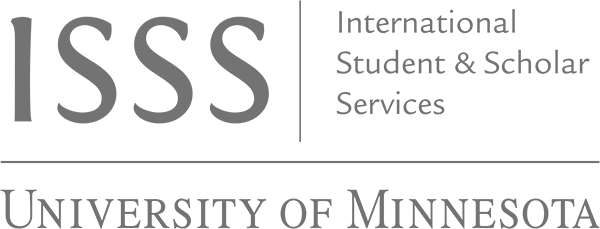A student who will not complete their academic program by the I-20 program end date should consult with an ISSS adviser regarding a program extension. If a student’s completed program extension application is submitted to and approved by an ISSS advisor before the I-20 program end date, the student continues to maintain F-1 status. The program extension procedure is detailed below.
Eligibility Criteria
- The student must have a valid passport at the time of program extension application.
- The student must be maintaining F-1 status and making normal progress toward completion of their educational objective.
- The delay in program completion is caused by a compelling academic or medical reason, such as a change of major, a change of research topic, an unexpected research problem, or a documented illness. Delays caused by academic probation or suspension are not acceptable reasons for a program extension.
- The student must not have been authorized for 12 months or more of full-time curricular practical training (CPT).
- The application materials listed below should be received by an ISSS advisor a minimum of ten business days before the I-20 program end date.
Application Materials
- The student should provide a signed and dated academic advisor letter of support printed on departmental letterhead. The letter should indicate:
- A recommendation that the student be allowed additional time to complete their degree
- A specific date (mm/dd/yyyy) by which the student is expected to complete their degree
- The reason for the delay in completion. If the student has experienced research-related problems, the advisor should provide a detailed description of the problems encountered and the measures taken or to be taken, so the student completes the degree by the expected date of degree completion.
- If the student applies for a program extension based on a medical reason, the student should provide documentation that indicates the medical condition has delayed the student's completion of the academic program. While a letter from a licensed medical doctor, doctor of osteopathy, or licensed clinical psychologist is not required for a program extension, documentation from a credentialed medical professional adds legitimacy to the student’s request. Examples of medical documentation include the following:
- A medical professional’s letter or memo that was used to support a prior reduced course load request made by the student
- A recent letter from a medical professional which indicates the student’s medical condition has delayed completion of the academic program
- A letter from the UMN Disability Resource Center indicating that the student’s certified disability has delayed completion of the academic program
- Completed Financial Certification Statement
- Documentation of any UMN funding (for example, assistantship, fellowship, scholarship, or any other on-campus employment), if the student wants a UMN source of funding indicated on the new I-20
Steps in the Approval Process
- Submit the application materials to an ISSS advisor during scheduled Drop-In Hours or during a scheduled appointment.
- The ISSS advisor will review the student’s program extension eligibility and provide an initial review of the student’s application materials. Any recommended revisions to the application will be provided by the ISSS advisor to the student.
- The ISSS advisor who receives the student’s program extension application will notify the student regarding whether the program extension application is approved and when the student can expect to receive their new I-20 with a new program end date.
Student Action After Program Extension Denial or Approval
If the student’s program extension application is approved, the student should note the following:
- If working on-campus, the student must contact the payroll/HR representative in the departmental where they work to complete a new Form I-9, so the student continues to be paid.
- The student must renew their Minnesota driver’s license, if necessary. Students are not eligible to legally drive with a license which has an expired “status check” date.
- The student is no longer eligible for full-time CPT.
If the student’s program extension application is denied, an ISSS advisor will discuss with the student their options moving forward. Some possible options are the following:
- Apply for optional practical training, if the student is eligible.
- Obtain admission to a different academic program at UMN or another college or university, in the U.S. or abroad, and then transfer to that program.
- Depart the U.S. without having completed the academic program.
- If the student loses their F-1 status, they should consult with an ISSS advisor regarding options to regain F-1 status.
